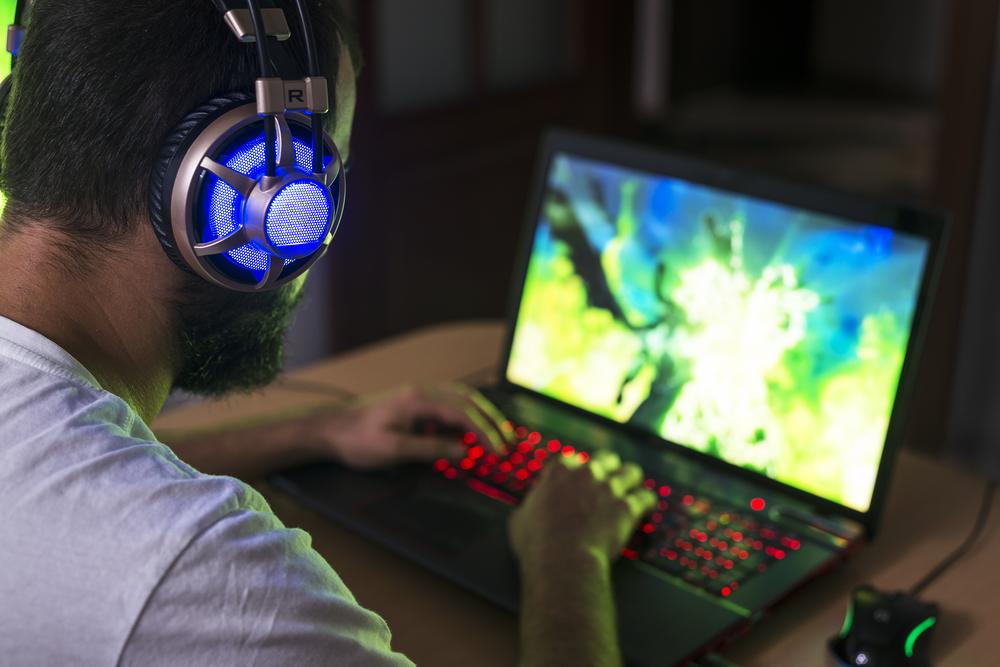A Beginner’s Guide to Buying a Gaming Laptop
Eons ago, no one would have imagined personal computers to be gaming machines. We were playing with the Gameboy and Nintendo. Today, you have smashing consoles and laptops making gameplay more than a game.
Amazing graphics, sounds, and prolonged adventure are the identifiers for any seasoned gamer. Purists believe that PCs or personal computers are the only way to play games. But, not true! Now you can achieve the same level of finesse with gaming laptops!

There’s no need to melt in your chair over a PC now. You’ve portable gaming laptops that deliver all the performance. Everything that you need for a good gaming session is now done by gaming laptops. Big players in the market have launched laptops designed for hardcore gaming. They have focused on giving you an enriched experience while you play. With today’s gaming laptops, you don’t only play games; you live them – Hello Virtual Reality!
You may be enthusiastic about getting an Alienware or a Razer Blade. But do keep these tips in mind. Many pro gamers slack on these to lose out on performance and experience of gameplay. If you are a beginner, these tips will save you from losing out on performance or money.
The Graphics Processing Unit or the GPU
Any gaming laptop should have a high-end built-in or external GPU. This term was first coined by Nvidia and refers to the graphics processor. Any pro gamer would tell you to check for high-end GPU, like GTX-1060, 1070, and 1080. A high-grade GPU is to ensure that the graphics of a game are crisp, sharp, and do not slow down the processing of images. You need an effective GPU for discrete function and to avoid heating up of your system during gameplay.
Though the prices of an AMD or Nvidia GPU may be steep, it is worth every penny. Check for inbuilt or external GPU on your gaming laptop for hassle-free gameplay.
Display and resolution
For a good gaming laptop, consider a screen size of 12 to 14 inches for a good visual experience. You can go for bigger screens too, but they will increase the bulk of your gaming laptop. Small sized gaming laptops offer ultra-portability and are not heavy on your computer. Companies like Razer and MSI do make light-weight and big screens of 17 to 18 inches, so you can check them out too.
In a gaming laptop, the resolution matters more than the screen size. For a smooth visual experience, a resolution of above 1920 x 1080 pixels is great. The higher the resolution, the experience is going to be better. But remember, it will also get heavy on the processor of your laptop. So choose a good GPU for using a higher end display resolution.
Battery life
Pro-gamers opine that battery life and good gaming laptops are paradoxical. But many gaming laptops these days come with an extended battery life of up to more than 8 hours. The reason why gaming laptops consume more battery power is the other high-end specs.
With a little more money, you can invest in a Dell XPS 15 or Gigabyte Aero 14 that gives around 9 hours of battery life. High-end gaming laptops from Razer, Alienware, and Acer also offer good battery life. Choose a processor of Intel i7 or above, for an uninterrupted experience. Compare these brands for battery backups and power performance for best results.
SSDs or Solid State Drives
In a gaming laptop, SSDs amp up the speed and performance of the system. But hard drives ensure that you have a lot of space on your laptop to save large files. It is advisable to use both SSD and HDD with 1TB space or more for performance and durability. SSDs and HDDs together, are good for a regular gaming laptop, as well as for downloading a video.
As a beginner, when you decide to buy gaming laptops, these tips come in handy. Don’t go into the purchase intimidated by the choices and specs. Do your research and stick to the basics. That way, not only will you be able to buy a good gaming laptop, you will be able to enjoy the experience too.




